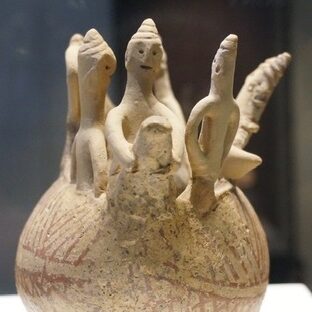I recently had the opportunity to chat again with Katharina about her PhD path. She graduated last December and now she is happily working as Education Specialist in Wageningen.
Like, Miguel, she was one of my students during the MSc thesis. Among other things, at that time her proactiveness to find solutions to practical problems we encountered in the lab and in the greenhouse was impressive. Probably, that experience left in her the seed of a PhD along with the curiosity to see what it means to handle a full project, from the idea to its realization.
Indeed, when we talked about the Why that convinced her to start a PhD, I wasn’t surprised when she said that she liked the idea of working on an actual problem and, therefore, contributing to a bigger purpose.
However, like many students experience, the PhD can be a perilous journey: half-way she started to feel anxiety. Fortunately, she sought of asking for help. It must have been heartwarming to hear from one of her supervisors this powerful and liberating advice: “Stay true to yourself”. Because it’s important to remember that it is not a shame to feel not good when you are under a lot of pressure and to say it out loud. To even consider taking a step back and prioritize your own wellbeing over everything else. It requires more courage than continuing on the set path.
Those words allowed her to reconnect with the initial Why and persevere through the journey not for the title that awaits at the end but for the passion and the challenge that a PhD poses.
It is a steep learning curve!
For Katharina, it also meant to realize how important it is to balance PhD life with other activities, preferably those that have nothing to do with the work she did, so that she could disconnect and restart the next day recharged.
This is also a beautiful way to get “contaminated” by something different rather than just the area you are interested in, where little by little, you become the expert. I see also an interesting extra value to it, which is to learn soft skills that might come in handy in your future career. Indeed, soft skills are transferrable to many circumstances because they are related to the how you do certain things opposed to the hard skills that relate to the what you are able to do. For example, Katharina realized that a good lesson from the relationship with her supervisors is to have learnt to communicate more efficiently and to have benefitted from this skill also later in the job she landed after the PhD.

Last but not least, Katharina’s advice on a healthy PhD experience is to talk to your peers. Sharing your own struggles with others makes you realize that we are all on the same boat and so we can understand, feel and support each other. Then you discover that a friend, disguised in a white coat, sometimes is just a cup of coffee away!
